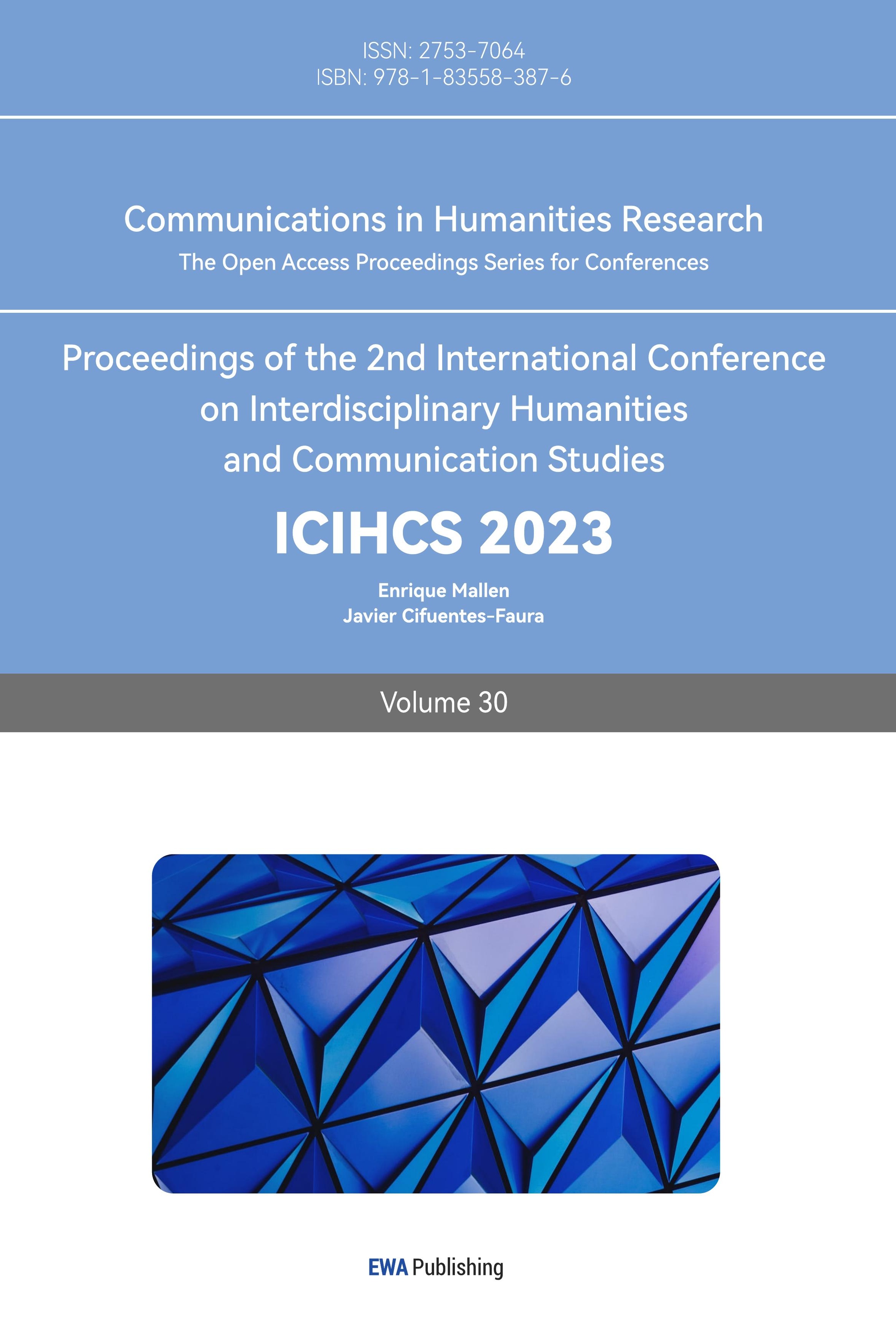1.Introduction
Feminist film theory can be traced back to the second wave feminist movements. Laura Mulvey, famous paper ' narrative cinema and visual pleasure' can be considered as a milestone in deconstructing the Hollywood mainstream movies. Using psychoanalysis, Freud's theory of the sexual instinct and its derivations of voyeurism, castration anxiety, and Jacque Lacan's mirror stage, she focuses on mainstream Hollywood cinema as an example, critically analyzing how the institution of masculinity is represented on the big screen. The example of mainstream Hollywood films is used to critically analyze how the objectification of women as objects by the patriarchal system is represented on the big screen. As society continues to change and new ideas emerge, there are more and more criticisms of Laura Mulvey, but it is indisputable that the feminist movement, which originated in the 20s and 60s, drew into the public eyes the issue of gender and triggered reflection from all walks of life.
A growing number of voices emerged in film scholarship, among them counter-cinema 'In 1979, "Women's Cinema as Counter Cinema" which was written by Claire Johnston and the article of Laura Mulvey "Visual Pleasure and Narrative Cinema" are accepted as the first theoretical studies of feminist cinema. Johnston argues that feminist cinema may be counter cinema and may become another language to counter Hollywood cinema in terms of production and content. Under the influence of this trend, Hollywood released Thelma & Louise in 1991 [1]. As the first police procedural with a female protagonist, Thelma & Louise received both word-of-mouth and commercial success, earning six Oscar nominations and an award for Best Original Screenplay, making it one of the top-grossing films of the year. The film was one of the biggest sellers of the year. The film can be said to be a reversal and inversion of the theme of the previous unified male protagonist and mainstream culture as the basic characteristics of the road movie - the theme of the classic film is that the protagonist ultimately to obtain the recognition of the identity and establishment, but Thelma & Louise is a process of denial, is the two female protagonists gradually Thelma & Louise is a process of denial, a gradual process of the two female protagonists denying their socially prescribed female identities, their female selves and their female imaginations.
This paper attempts to analyze how the female consciousness of the two female protagonists, Thelma and Louise, awakens and grows step by step from such a feminist film made by a male director.
As the most influential British director in contemporary Hollywood, Ridley Scott is well known for directing the Hollywood epic "Gladiator", the sci-fi film "Mars Rescue" and "Blade Runner". As a male director specializing in heroic themes, Scott's films are not short of distinctive female characters. e.g. - Leprechaun, who always fights rather than being protected by the male characters in "The Opposite Sex"; In the Female Simple Soldier, women who are unhappy with the unfair treatment of women in the military and join the Special Forces to train for the devil and eventually get the respect they deserve. They are no longer sex symbols to be watched in the traditional sense, but carry narrative meaning and have distinct gender identity. This article analyses Ridley Scott's film The End of the Line, a Hollywood police procedural starring a woman and telling a woman's story, which is also the first time that Hollywood has introduced a woman as a protagonist in this male-dominated genre.
The film tells the story of two women who are caught up in an unexpected incident during an ordinary weekend trip due to Thelma's negligence, and step by step, they escape from the established legal and patriarchal constraints, and ultimately deviate from their original lives to bravely pursue freedom.
As the editorial committee of the Dictionary of Film Art edited: Dictionary of Film Art, China Film Press, 1986 edition, states. The awakening of women's consciousness in this film is "first of all, to separate women from the chaotic system of functional roles and relationships that patriarchal society prescribes for women, to obtain an identity independent of functional roles, and to affirm the ontological definition of women's existence as human beings", which is one of the reasons why the film was so well received and appreciated upon its release. This is one of the reasons why the film was both a hit and a hit upon its release.
The two women's two-hour screen adventure not only reveals the characters' revenge on men and the awakening of women's self-consciousness, but also brings a certain amount of criticism and reflection on the patriarchal society they live in, as well as the establishment of their self-subjectivity to the female audience sitting in front of the big screen.
2.Feminine Consciousness
2.1.What Is Gender
Gender is a central concept in contemporary feminist theory and a central element of feminist scholarship [2]. ln the early days, feminists criticized the "biological determinism" of the mid-twentieth century, in which sexual difference determined women's subordinate status. Against this background, feminists proposed that "the roles that women play are not determined by their biology, but by social and cultural norms. In order to differentiate between the biological sexes and to break the cultural domination based on female biology, in the 1970s they began to use the term gender to represent all cultural meanings of womanhood. The so-called gender roles can be defined as “characteristics of gender in traditional representations that draw differences between typical ‘feminine’ behaviors from typical ‘masculine’ behaviors in society [3]”. More specifically, gender roles define how women and men have to behave and act in our society and can go as far as defining the form of occupational roles. In general, women are displayed as the weaker sex; they “reiterate the cultural image of women as . . . ornamental objects whose primary functions are to look good, please men, and stay quietly on the periphery of life”
2.2.How We Define The Feminine Consciousness
In current society, female consciousness or gender consciousness is a hot topic, which has led to many social issues about women, especially in cultural media. Women's consciousness includes attention to women's sexuality, physical characteristics, and feelings. A female writer explains what female consciousness is by saying, "The most important thing should be women's unique vision to grasp the world - to look at the world with women's eyes and to participate in the major decisions that determine the destiny of the whole human race [4]." Some other scholars say: "Women's consciousness is women's enlightenment, the affirmation of women's value, strength and superiority, and the negation of the idea that women are the weaker sex [4]. As Liu Bohong analyzed: "What is gender consciousness is the recognition of the premise of inequality between men and women, and the active elimination of inequality between men and women, especially the active discovery of women's problems from a gender perspective, and the exploration of the elimination of such inequality in the cultural and social structure of people's behavior [5]." I think the fundamental significance of women's consciousness is to enable more women to make their own life choices freely.
3.Film Analysis
3.1.Analyze The Film for Changes In Camera Language
The film before the escape focuses on the daily lives of the two heroines and their activities in the bar. For the most part in this section the composition is tight and closed, and also use depth-of-field compositions to concentrate key information in the foreground and mid-ground of the picture, focusing on the fact that the two female protagonists are initially in a male-dominated society full of repression and restraints.
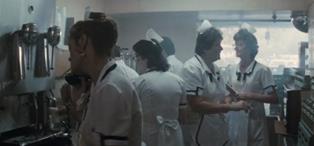
Figure 1: the cafe where Louis works
At the beginning of the film, Louise works in a busy cafe, and it is easy to notice that most of the waitresses in the cafe are women, as shown in Figure 1, which is representative of the fact that in the background of that time, women were mostly engaged in cheap jobs with low social returns, or in the service industry, which reflected the structural difficulties that women were facing at that time when they were searching for jobs.
In contrast to Thelma's character's appearance, faced with her best friend's invitation for a weekend trip, the first thing she worries about is how to get her husband's permission, and the next section of footage of her at home is all shot in the kitchen, Figure 2 shows. Crowded small kitchen, but the husband accounted for more than one-third of the composition, and most of the shots of the husband's side to occupy the main body of the screen reflects the husband's tyranny at home.
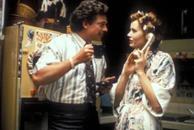
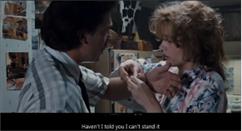
Figure 2: the frame between Thelma and her husband
Climax-The first twist is that after Louise kills someone in a bar to save Thelma, their original weekend trip turns into an escapade, and the director has a noticeable change in the spatial setting, with the second half of the film becoming more and more open in terms of composition, showing the two on the run all the way to the vast western Gobi landscape, while also suggesting that the characters are breaking the established rules and seeking the process of liberation. Figure 3 shows that the second half of the film becomes more and more expansive in terms of its composition. The off-screen realization that women's destinies are no longer bound by the traditional patriarchal system is constructed.
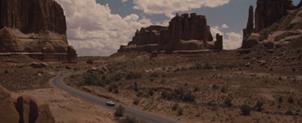
Figure 3: the composition become more expansive, emphasizes the women’s liberty and freedom
3.2.How The Heroine is Portrayed Through The Camera
The film uses a great deal of audiovisual language to directly and indirectly shape the process of change of the two female protagonists, both externally and internally, with several key male characters directly contributing to the plot.
e.g.
At the beginning of the film, there is a detail that Louise advises the young female guests not to smoke, which will affect their libido, but the next shot is of herself smoking in the back kitchen, which can be seen in the independent and rebellious spirit of Louis' character,as shown in figure 4.
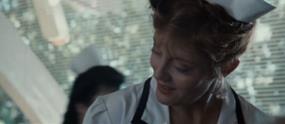
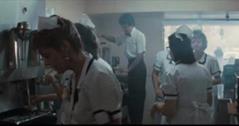
Figure 4: Louise has conservation with guests
In contrast, Thelma is a housewife with no sense of agency in her family's plight. The next parallel montage shows the two heroines unpacking their belongings, can be seen in Figure 5, and in contrast to Louise's methodical approach, Thelma is very random and disorganized, shoving everything into her suitcase that is useful and useless, bringing guns and lamps for safety reasons, and so on, all of which are typical of Thelma's long career as a housewife: unassertive, timid and cautious, but considerate.
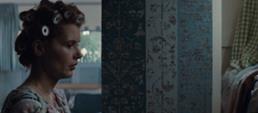
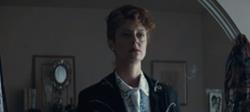
Figure 5: the comparison of packing between Thelma and Louise
When Louise drives to pick up Thelma, she is dressed in a denim jacket with a white strapless dress, modern, stylish blonde curls, and delicate make-up typical of the dominant 'blonde beauty' aesthetic - and reflective of the fact that Thelma is, from the outset, a typical image of a woman pandering to the demands of a male-dominated, disciplined society. As Laura Mulvey states that within traditional, classical Hollywood films women are presented to be passive and the men are presented to be in control and powerful. control and powerful [6].
Louise, on the other hand, is wearing a bright red lip with an embroidered white shirt and a brightly colored headscarf - with this outfit, we can see that the director is trying to imply that Louise's character is feminine yet independent and capable.
-The lighting in this section is also mostly natural, highlighting the happy mood of the duo as they embark on their journey, as Figure 6 displays.
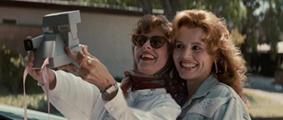
Figure 6: the happy mood when they start journey
Through the appearance of male characters, the director pulls the narrative and to show the growth and self-awareness of the two female protagonists.
The film's first "retaliation" against a man is the encounter with Harlan, a bartender they meet during a break at the Silver Bullet bar, who, due to Thelma's naiveté, inadvertently invites Harlan to molest her. In the nick of time, Louise comes to her rescue, as figure 7 shows. That being said, it's important to point out that this shooting didn't happen only to take revenge. didn't happen only to take revenge from Harlan, it was also 'to avenge … all of the little rapes, the everyday usurpations of female autonomy that all women know [7]". This scene exists as a tool to expose the "inequalities in a patriarchal system that often assume that women ask to be shot". This scene exists as a tool to expose the "inequalities in a patriarchal system that often assume women ask to be raped because of their actions or dress ". Cooper exposing the differentiation and discrimination between men and women in patriarchal societies with regard to "sexuality" [8].
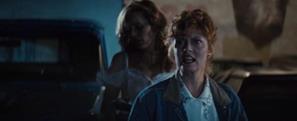
Figure 7: Louise save Thelma
Thelma, on the other hand, is shown to be devastated, confused, anxious, and helpless, and her attempts to call her husband are met with contempt and a threatening attitude, which can be seen in Figure 8. Thelma, who has regained her freedom, is dealt a double blow at the beginning of her journey, forcing her to rethink her relationship with her husband and with men, and her own sense of subjectivity begins to slowly awaken.

Figure 8: Thelma calls to her husband
(Thelma responds to her husband with what Louis asked her back at the beginning)
At the same time, Louise's over-the-top murder and her calm reasoning afterwards show her subconscious distrust of the justice system and set the stage for Louise's character's past story.
The second major twist comes when the two encounter Brad Pitt's cowboy, JD, who accosts Thelma on the pretext of giving her a lift while they are on the run to Mexico. Unlike typical patriarchal stereotypes of masculinity, JD's "genteel" and "modest" demeanor is a subtle way of winning Thelma's heart and her trust through a combination of subtlety and personal charm. Laura Mulvey originally deemed the male gaze as a cinematic tool used to exploit the female body, where the female on screen was stereotypically utilized as an object to look at and admire [6]. In this sequence the director skillfully transforms the traditional male gaze - both the male looking and the female being looked at. Instead of showing too much of Thelma's body the director uses a panning shot of Brad Pitt's muscular body to objectify the male body. The first scene with J.D witnesses his objectification by Thelma, such as her comment on his "cute butt"[9]. As shown in Figure 9. - comparing it to her unsightly husband's - and her animalistic reaction to the sight of him, through both panting and whimpering like a dog. panting and whimpering like a dog. This canine-like analogy, although usually used as a metaphor for the male sex drive and sexual arousal, is here transformed by the director into an object of desire in the male body [10].

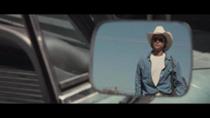
Figure 9: Thelma’s gaze on J.D
However, after being scammed out of their money this time, J.D certainly pushes them further into the depths of crime. After having their outlaw money stolen, Thelma and Luis' identities shifted. Previously it had been Louise leading and Thelma obeying in their actions, however this was the first time Louise had an emotional breakdown and from that moment on she appeared even more passive than in previous scenes. Louise even contemplates turning herself in to the police while talking to the detective. It is also in this segment that we get a glimpse of Louise having been victimized by men in Texas and not being treated fairly by the judiciary as she should have been.
Thelma takes the lead in the next action, learning the tricks JD taught her and successfully robbing a convenience store with a gun, thanks to JD's "tenderness" and "relentless betrayal," which makes her finally have no more illusions about men and patriarchal society. She has no more illusions about men and patriarchal society [11].
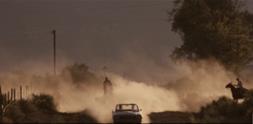
Figure 10: Louise firstly feels hesitate
The two drive through a farm after Thelma robs the shop, and Louis expresses his mixed emotions for the first time. As figure 10 displays.
Luis: "Damn, I don't know why l just didn't go to the police right away."
Selma: "Nobody believe us. we'd still get in trouble; we'd still have our lives ruined"
That guy was hurting me, if you hadn't come out when you did, he would've hurt me a lot worse, and probably nothing would 've happened to him cause everybody did see me dancing with him all night. They would've made out like I'd asked for it. And I'm not sorry that son of a bitch is dead. I'm just sorry it was you that did it and not me.
Not only does this character dialogue show Louis's inner hesitation at this point, but Thelma's recollection of killing Harlan has changed from initial fear to inner reconciliation. It is clear that she has realized that the patriarchal justice system will see the fact that she danced with Harlan first as a sign of her indiscretion and disregard for a woman's right to say no to a man's sexual advances. This passage of hers encourages Louise's simultaneous expression of her own sense of subjectivity. At the same time the composition here with the cows at the front and back obstructing the progress of their car also symbolizes the omnipresent power structure of the patriarchy that has always surrounded these two women.

Figure 11: close-up shots
In this section, the director uses a close-up camera to switch between the front windscreen of the two women's cars, and uses the superimposed faces of the two women, and after several superimposed drawings, uses a continuous sequence starting from Louise's pan to Selma's, just as figure 11 shows. The director directly uses visual language to present their mutual destiny, their awareness of each other, their sisterhood and the destiny they must share for the vulnerable and the marginalized. The director directly uses visual language to present their mutual assumption of destiny at this moment, their mutual recognition of each other, their sisterly love for each other and the destiny of women and the destiny of the disadvantaged group of marginalized rebels that they have to bear together as a high degree of identification and mutual assumption, which also paves the way for the closing moment when the two of them clasp their hands together.
The third most obvious retaliation is the lorry driver who is verbally violent towards them on the road. The lorry driver and Harlan are symbolic of two of the most pervasive problems of patriarchal society for women - sexual harassment and sexual violence. In the two increasingly nasty verbal violence, the two are no longer tolerant and demand an apology after being refused, the two detonate the tanker, Thelma takes the hat and the two surround the driver in the dust and leave in style, where it can be seen that the two's clothing has been changed from the beginning of the femininity of the dress to a completely unisex attire, cowboy hats are an indispensable accessory for the men in the American Westerns, symbolizing adventure, freedom, pioneering and the spirit of the wild is also the traditional spirit of the Western. The cowboy hat is an indispensable accessory for men in American western films, symbolizing adventure, freedom, pioneering and wild spirit, which is also the embodiment of traditional masculinity. In this clip, Louis exchanges his jewelry for a cowboy hat, declaring their challenge to the patriarchy with the image of the cowboy, which is full of masculine symbolism.
Thelma's position at the front of the picture also represents the subtlety of the relationship between the two women, as Thelma begins to take the initiative in guiding the actions of them, which can be seen in Figure 12. They evolve as women since they start to challenge the traditional duties and roles on their shoulders and stop being afraid of men [12]. At this point Thelma goes from being a helpless, timid friend who needs to be taken care of to a powerful friend who can also take the initiative to solve problems.

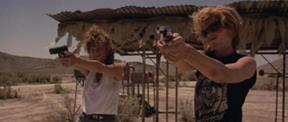
Figure 12: they punished the lorry driver
4.The use of film techniques also alludes to the fate of the main character
At the end of the film Louise and Thelma are hotly pursued by the police as their car races across the desert and the highway. Panoramic shots in films are mainly used to show a specific narrative space, i.e., there are parts and the whole, and can be used to show the relationship between people and a specific environment, and to show the movement and behavior of people or objects [13]. Here, the director employs a large panoramic shot to show the viewer the smallness of Louise and Thelma as they flee on the moor. In the following scenes, the director also purposely gives a panoramic view from above: almost an army is coming in force, encircling from all sides in a fan shape.At the top of the fan, while their car rides across the moor in a single bound, as shown in Figure 13.

Figure 13: Military pursuit
Until the helicopter rises up head-on to intercept their propellers and blows off their hats in a huge cyclone, as Figure 14 displays, a shot that very directly shows the powerlessness of these two weak women against the entire male-dominated society.

Figure 14: the comparison between helicopter and car
The director gave close-up shots of the police's expression and the army's machine gun, especially on its loading bullets, the action of the trigger on the hand movements were zoomed in close-up, as Figure 15 shows, but also alludes to the indifference of the male-dominated society as well as the ruthlessness of the law.



Figure 15: close-up shots emphasize the rules of patriarchal society
The film concludes with the use of over-the-shoulder and close-up shots, side backlighting, Figure 16 shows, symmetrical close-ups constantly switching between the two women's facial expressions, showing their despair over their past lives and the legal system and their determination to pursue freedom.
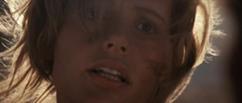

Figure 16: the decision moment
When starting the engine, the director used slow-motion, which can be seen in Figure 17, the police officer waving his hands behind his back to follow the car, which protects the two women's last action in terms of the plot, and in terms of the characters' psychology, that is to say, it is a retention and a goodbye.

Figure 17: the slow-motion
The ending uses Hans Zimmer's "Thunderbird" as the background music, which is extraordinarily vast and sadly poignant. At the moment when the front of the car rushes out of the cliff, the two women smile and clasp hands, Figure 18 displays, and the camera, like at the beginning of the film, employs a horizontal panning shot, which keeps moving with the car's drive until the car flies towards the canyon and is frozen in time, as shown in Figure 19.

Figure 18: Thelma and Louise clasp their hands
At the end the director also uses superimposed drawings and flashbacks to recall the changes in the pair along the way, adding to the sense of regret. Alexandra Heller-Nicolas (2012) argues that the ending can be read from a feminist perspective, as the two women have been in control of their own choices and lifestyles and therefore are free to choose the way in which they will die. This decision to die together can be read as the pair's "final stage in feminist consciousness-positive actions for change - both personally and societally". Their choice to commit suicide is heroic, concluding they are both "triumphant in Their choice to commit suicide is heroic, concluding they are both "triumphant in death" [14]. Due to the way death sets them free from the constraints of life - and the patriarchal society. Their death rids them of a life consigned to imprisonment and isolation from each other.

Figure 19: the freeze-frame
5.Conclusion
The 1960s women's liberation and sexual liberation movements provided the backdrop for this film, and although Thelma & Louise was released in the 1990s, the film still carries the anger of the rebellious culture of the 1960s. Although it is debatable whether or not the film is strictly feminist, there is no doubting the cultural appeal and subversive power of the film when the two female characters replace the male ones in the most mature American core genre. The film's desire to recognise women's life experience, women's pain, and women's social survival is a milestone for mainstream Hollywood cinema, and Ridley Scott's direction also shows us the actions and position that an artist with a conscience might take in the face of the disadvantaged in mainstream culture.
Filmography
SCOTT,R.,1991.Thelma and Louise.[DVD]. California: MGM.
References
[1]. Gürkan,J.(2015). Feminist Cinema as Counter Cinema: Is Feminist Cinema Counter Cinema? .Online Journal of Communication and Media Technologies (Volume: 5 - Issue: 3)
[2]. Wang,Z.(2004)Crossing Borders--Transcultural Feminist Practices TIANJINRENMINCHUBANSHE,Tianjin
[3]. Krahn, Kayla(2015) Reel Women: Gender Stereotypes in Film. MA Thesis. Eastern MichiganUniversity,Web.28March2017.www.commons.emich.edu/cgi/viewcontent.cgi?article=2015&context=theses
[4]. See the world through the woman's eyes. China Women's News. 30 October ,1995
[5]. Gender Awareness: Let the whole Society pay attention (I).China Women's News, July 9, 1995
[6]. Laura Mulvey(1975)Visual Pleasure And Narrative Cinema Screen, 16.3 <https://doi.org/10.1093/screen/16.3.6>6-18.
[7]. Putnam, Ann.(1993) The Bearer of the Gaze in Ridley·Scott's 'Thelma and Louise.'" Western American Literature, vol. 27, no. 4, pp. (JSTOR, www.jstor.org/stable/43021037.291-302.
[8]. Brenda Cooper, (2000), "“Chick Flicks” As Feminist Texts: The Appropriation Of The Male Gaze In Thelma & Louise", Women's Studies In Communication, 23.3 <https://doi.org/10.1080/07491409.2000.11735771>. pp. 277-306.
[9]. Ridley Scott(1991)Thelma And Louise (Hollywood: Metro-Goldwyn-Mayer, )
[10]. Emma Gardner B.A., M.A. Female Empowerment and the Appropriation of the Male Gaze in Thelma and Louise.Bath Spa University
[11]. Zhong,LX.(2007). From "Angel" to "Devil" - A Feminist Interpretation of Thelma & Louise.Journal of the University of Electronic Science and Technology, Social Science Edition.
[12]. Hakan,KR(2018). Assist. Bülent AyyıldızAKE (01)The Impact of The Road Trip in Scott Ridley's Thelma & Louise.108.
[13]. Qi,P Analyzes the beginning and end of the film Thelma and Louise .Audiovisual world.(C)1994-2023 China Academic Journal Electronic Publishing House.All rights reserved.http://www.cnki.net.198.
[14]. Patricia,M.(1995)Patricia,A Fine Romance: Five Ages Of Film Feminism Philadelphia: Temple University Press.
Cite this article
Yao,Y. (2024). Analyzing the Growth and Feminine Consciousness of the Two Heroines in 'Thelma and Louise'. Communications in Humanities Research,30,18-28.
Data availability
The datasets used and/or analyzed during the current study will be available from the authors upon reasonable request.
Disclaimer/Publisher's Note
The statements, opinions and data contained in all publications are solely those of the individual author(s) and contributor(s) and not of EWA Publishing and/or the editor(s). EWA Publishing and/or the editor(s) disclaim responsibility for any injury to people or property resulting from any ideas, methods, instructions or products referred to in the content.
About volume
Volume title: Proceedings of the 2nd International Conference on Interdisciplinary Humanities and Communication Studies
© 2024 by the author(s). Licensee EWA Publishing, Oxford, UK. This article is an open access article distributed under the terms and
conditions of the Creative Commons Attribution (CC BY) license. Authors who
publish this series agree to the following terms:
1. Authors retain copyright and grant the series right of first publication with the work simultaneously licensed under a Creative Commons
Attribution License that allows others to share the work with an acknowledgment of the work's authorship and initial publication in this
series.
2. Authors are able to enter into separate, additional contractual arrangements for the non-exclusive distribution of the series's published
version of the work (e.g., post it to an institutional repository or publish it in a book), with an acknowledgment of its initial
publication in this series.
3. Authors are permitted and encouraged to post their work online (e.g., in institutional repositories or on their website) prior to and
during the submission process, as it can lead to productive exchanges, as well as earlier and greater citation of published work (See
Open access policy for details).
References
[1]. Gürkan,J.(2015). Feminist Cinema as Counter Cinema: Is Feminist Cinema Counter Cinema? .Online Journal of Communication and Media Technologies (Volume: 5 - Issue: 3)
[2]. Wang,Z.(2004)Crossing Borders--Transcultural Feminist Practices TIANJINRENMINCHUBANSHE,Tianjin
[3]. Krahn, Kayla(2015) Reel Women: Gender Stereotypes in Film. MA Thesis. Eastern MichiganUniversity,Web.28March2017.www.commons.emich.edu/cgi/viewcontent.cgi?article=2015&context=theses
[4]. See the world through the woman's eyes. China Women's News. 30 October ,1995
[5]. Gender Awareness: Let the whole Society pay attention (I).China Women's News, July 9, 1995
[6]. Laura Mulvey(1975)Visual Pleasure And Narrative Cinema Screen, 16.3 <https://doi.org/10.1093/screen/16.3.6>6-18.
[7]. Putnam, Ann.(1993) The Bearer of the Gaze in Ridley·Scott's 'Thelma and Louise.'" Western American Literature, vol. 27, no. 4, pp. (JSTOR, www.jstor.org/stable/43021037.291-302.
[8]. Brenda Cooper, (2000), "“Chick Flicks” As Feminist Texts: The Appropriation Of The Male Gaze In Thelma & Louise", Women's Studies In Communication, 23.3 <https://doi.org/10.1080/07491409.2000.11735771>. pp. 277-306.
[9]. Ridley Scott(1991)Thelma And Louise (Hollywood: Metro-Goldwyn-Mayer, )
[10]. Emma Gardner B.A., M.A. Female Empowerment and the Appropriation of the Male Gaze in Thelma and Louise.Bath Spa University
[11]. Zhong,LX.(2007). From "Angel" to "Devil" - A Feminist Interpretation of Thelma & Louise.Journal of the University of Electronic Science and Technology, Social Science Edition.
[12]. Hakan,KR(2018). Assist. Bülent AyyıldızAKE (01)The Impact of The Road Trip in Scott Ridley's Thelma & Louise.108.
[13]. Qi,P Analyzes the beginning and end of the film Thelma and Louise .Audiovisual world.(C)1994-2023 China Academic Journal Electronic Publishing House.All rights reserved.http://www.cnki.net.198.
[14]. Patricia,M.(1995)Patricia,A Fine Romance: Five Ages Of Film Feminism Philadelphia: Temple University Press.





